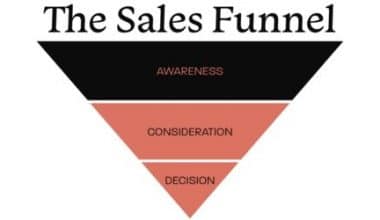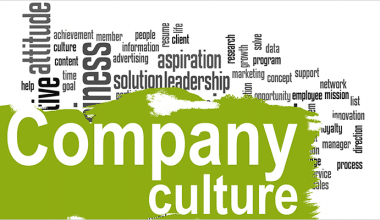I heard once that just as people have different looks, so does their behavior, attitude, belief, and character differs. Truly, I never had any reason to believe otherwise until I learned about work culture. Yes! There’s such a thing as work culture and you’re about to learn that as well. Contrary to what I heard, it is possible for people, even with different looks can still behave in the same way and believe in the same thing too—that is what work culture does.
The topic today is work culture. Pull up a cushion, sit back, and relax as I walk you through everything you need to know about the subject matter.
Overview
One of the biggest mistakes many organizations make is allowing their work culture to form naturally without first defining what they want it to be. Even if the culture had a positive effect on the organization, it is still questionable because it was not defined. Culture is the character and personality of an organization. It’s what makes the business unique and is the sum of its values, traditions, beliefs, behaviors, attitudes, etc.
As I said in the first chapter, work culture forces different people with different looks, from different backgrounds with different personality traits and beliefs to act and believe in one thing, which is achieving the organizational goal. No organization should jeopardize that.
Work Culture Definition
Work culture is a set of attitudes, ideas, and behaviors that constitute the normal atmosphere at the workplace. The above definition obviously described a positive work culture, in other words, there’s a negative or toxic work culture [we will be discussing that much later]. A positive work culture is one that aligns employee actions and business policies with the organization’s general objectives while also recognizing individual well-being.
To put it another way, a positive workplace culture attracts talent, motivates engagement, influences happiness and satisfaction, and has an impact on performance. Finally, work culture impacts how well a person fits in at a new job and their capacity to form professional relationships with coworkers. The culture of your workplace influences your attitude, work-life balance, growth possibilities, and job satisfaction.
What Influences Work Culture Definition in the Workplace
A variety of factors influence work culture definition, including:
#1. Policies and Principles
One of the major factors that support the work culture definition process is the organization’s policies and principles. Employment policies such as code of conduct, attendance, dress code, and scheduling regulations, as well as organizational principles such as hiring, remuneration, pay for performance, and internal transfer and promotion are included.
#2. People
The people working in the organization also influence the work culture definition. Their beliefs, personality traits, values, attitudes, talents, and personal experiences. Furthermore, the type of communication that exists among them; could be confrontational or interactive, social or task-oriented, supportive or non-supportive, and so on.
#3. Mission and Vision [Values]
Clarity of purpose, vision, and values, as well as whether they accurately reflect the organization’s precepts, how motivated they are to the employees, and the extent to which they are stable and widely communicated.
#4. Working Conditions
These include what people put on their desks, what the organization hangs on its walls, how space and offices are allocated, how those offices look (color, furniture, etc.), and how common areas are used.
The manner in which communication takes place in the workplace. The degree, nature, and frequency of interaction and communication between leaders and employees, and managers and employees, as well as the level of transparency in sharing information and making choices, are all important considerations in the work culture definition process.
#5. Leadership and Management
This has to do with what the leaders communicate and emphasize, their vision for the future, what they celebrate and recognize, what they expect, the stories they tell, how they make decisions, the extent to which they are trusted, and the beliefs and perceptions they reinforce.
Components of Positive Work Culture
Already, we have mentioned and explained positive work culture, What we haven’t done, however, is explain the aspects or elements of positive work culture. When evaluating potential employers, the hiring manager should keep an eye out for the following components of positive workplace culture:
#1. Communication
If you want to have an effective workplace, open communication is a must. Feedback, idea-sharing, collaboration, and problem-solving are all crucial skills that all members of a company should have. While it’s inevitable that disagreements will arise within any given team, a healthy culture at the office will help members work together to find solutions.
#2. Recognition
Successful companies celebrate their employees’ achievements and reward their hard work. In a productive workplace, management actively seeks out and capitalizes on each team member’s strengths. A work environment based on appreciation and mutual respect can be fostered by providing employees with regular verbal praise in addition to attractive compensation.
#3. Accountability
A productive work environment is one in which all employees take personal responsibility for their actions. People are more likely to share their ideas and admit their mistakes in a well-balanced workplace. Every worker benefits from open accountability because they are able to grow from adversity rather than run from it. In essence, accountability promotes a trustworthy and responsible work environment where employees are encouraged to work together.
#4. Equity
Workplace cultures are typically flourishing in equity companies that treat all employees fairly. The morale of an organization’s workforce can be improved by recognizing and rewarding contributions from all employees. Unfortunately, a toxic work culture is marked by favoritism, which breeds suspicion and resentment among employees. Therefore, a democratic work environment is crucial to fostering a positive culture at work.
#5. Expression
When employees have a safe space to voice their opinions and ideas, they are more engaged in their work and ultimately produce better results. If workers are allowed to express themselves through dress code and office decor, it’s a good sign that they feel comfortable there.
Why is a Positive Work Culture Necessary?
To be productive, employees need a safe and pleasant place to do their jobs. The people you interact with on a daily basis set the tone for how you feel at work. In a nutshell, a positive work culture influences all aspects of a business and the people within it.
Having a positive work culture in an organization is important for the following reasons:
#1. Employee Retention and Satisfaction
Talented workers need security and the chance to advance within an organization, not to be pigeonholed into one position or career tier. The key to retaining talented workers and minimizing turnover is creating an environment where they feel welcome and appreciated.
Furthermore, how fulfilled you are in your job depends heavily on how satisfied you are with the work culture. A positive work culture encourages employees to take pleasure in their contributions, while a toxic one can turn even the most dedicated worker sour on their job. Businesses can do a lot to boost employee morale by encouraging a healthy work-life balance and acknowledging the importance of employees’ other commitments.
#2. Improved Hiring Methods
Managers at companies with exceptional cultures understand how to find and hire people who will help them achieve their goals. You are more likely to feel comfortable in an organization whose beliefs and culture are similar to your own. Professionals with a positive work culture are compatible with one another and work together to achieve common goals.
#3. Reputation
An organization and its employees benefit from a positive and reputable image when the work culture is not toxic. Attracting and retaining top-tier talent is facilitated by providing a pleasant place to work. Companies with a positive mission that encourages and supports their staff are better positioned to forge strong bonds within their local communities.
#4. Excellence in Performance
When workers look forward to coming to work each day, they tend to work harder and achieve better results. People are more invested in their work and its success when they feel their efforts are being recognized and rewarded in a positive work environment.
Toxic Work Culture
A toxic work culture is the exact opposite of a positive one. It is a work environment in which negative behaviors such as bullying, manipulation, yelling, and so on have become so deeply rooted in the organization’s work culture that a lack of productivity, a lack of trust, high-stress levels, infighting, and discrimination have become the new culture.
A work culture that is toxic tends to put the employees in a difficult situation where they may have to choose every day between going to work and quitting. Eventually, they’ll have to choose to go to work because they need the Job regardless of the toxicity of the work environment. This chapter talks about the causes and effects of toxic work culture and possible ways to deal with it.
Effects of Toxic Work Culture
The following are some of the effects of a toxic work culture.
#1. Negativity and lack of enthusiasm
Employee dissatisfaction can develop into a vicious cycle. Unhappy employees can bring negativity into the office, infecting everyone else. If you notice a lack of enthusiasm among your team members, it’s critical to identify the source of the problem. Understanding the source of your team’s dissatisfaction can help you address their problems and foster a happier, more productive working atmosphere.
#2. High levels of turnover
According to SHRM data, one out of every five employees has left their job in the last five years due to toxic work culture If your firm has a high turnover rate, it may be time to examine your work culture.
While employees leave companies for a variety of reasons, if your company is constantly replacing staff, it could be a sign of workplace problems.
#3. Office Gossip.
Gossip thrives in unpleasant work conditions. When employees gossip about one another behind their backs, it can indicate a bad communication style that leads to distrust, drama, distractions, and, in the worst circumstances, bullying.
Furthermore, gossip becomes poisonous when it prevents employees from interacting openly with one another or when it becomes malicious, such as when employees disseminate false rumors about others.
#4. Role Ambiguity and Dysfunction
Unclear definitions of roles and responsibilities can contribute to chaos in the workplace.
When employees’ roles are not well-defined or properly expressed, they may experience worry about their supervisor’s expectations.
In some circumstances, this might lead to disagreements among team members about who is responsible for what. Conflicts among coworkers can lead to breakdowns in working relationships, which can eventually harm the entire team.
Setting clear limits and expectations, as well as explaining changes effectively, can aid in the prevention of this type of dysfunction.
#5. Chronic and Extreme Stress
Employees may get overly stressed for a variety of reasons. Overwork, uncertainty about expectations, disagreements with employers or coworkers, and communication difficulties are all common culprits.
Fear of failure, as well as difficulties connecting with team members and managers, can contribute to persistent stress, which can eventually lead to employee burnout.
How to Overcome a Toxic Work Culture.
As much as a toxic work culture or environment is unhealthy and contributes to the mental deterioration of the employee, it is still not the best decision to leave the job—at least not before trying the number of ways in which you can contain it.
Consider the following steps for handling a toxic work culture:
- The organization is full of many individuals. Find people who share your views and become friends with them. The group expects you to keep an eye on each other and report any relevant information to the others.
- Develop a habit of doing something relaxing whenever you’re feeling stressed from work. Take a deep breath, get in shape, listen to a good rhythm, or study something new. The trick here is to balance the drama of your 9 to 5 with a meaningful existence outside of work.
- Make a list of things to do so you’re not bored. Keeping your mind on the job at hand rather than the negative energy around you is much easier with the aid of a list.
- Keep detailed notes on your progress. Keep all correspondence (emails, phone logs, etc.) and documentation (decisions, meeting notes, etc.) of all interactions. You’ll need supporting documentation for your complaint.
- Last and very important is your exit plan. While you’re trying to stick around amidst the toxic environment regardless, start looking for a new job. When times go tough, you’ll be able to maintain your optimism with this. Think about getting a “bridge job” to keep you busy till you discover something more suitable to your skillset if you absolutely must quit immediately.
What is Another Name for Work Culture?
Work culture can also mean business culture, organizational culture, corporate philosophy, organizational ethos, or corporate culture.
What are the types of Culture in the Workplace?
They are classified into the following:
- Market culture
- Hierarchy culture
- Clan culture, and
- Adhocracy culture
What Kind of Work Culture is Ideal for Organizations?
The following work cultures have a positive effect on a given organization:
- Culture of mutual respect
- Transparency
- Innovation
- Empowerment, and
- Fun.
How Do You Create a Positive Work Culture?
- Determine your organization’s basic values.
- Establish trust by manifesting such values.
- Maintain clarity and consistency.
How Do You Develop a Work Culture?
Effective ways to develop workplace culture include but are not limited to:
- Develop good employee relationships
- Allow for transparency and communication
- Appreciate your staff
- Encourage employees to be recognized on a regular basis
- Schedule meaningful one-on-ones on a regular basis.
- Allow teams the autonomy they seek, as long as it doesn’t jeopardize the general goal of the organization
Finally
Knowing the importance of work culture and its effects on employees and organizations in general, making sure to develop a positive work culture should be as important as writing a business plan or starting the business itself.
Related Articles
- BAD BOSS: How to Identify and Deal with a Bad Boss
- SUPPLY CHAIN ANALYTICS: Meaning, Types & Importance
- BUSINESS CLASSIFICATION by Codes, Size & Types
- Company Culture: 2023 Best Practices and All You Need
References
- themuse.com
- workhuman.com
- topresume.com






